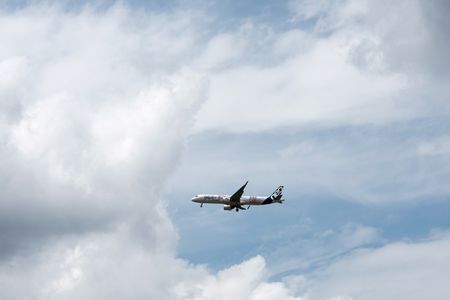By David Shepardson and Allison Lampert
CHICAGO/MONTREAL (Reuters) -A global blueprint for modern air travel struck 80 years ago this week faces fresh tests managing change and rising air traffic in the developing world, a senior official at the UN’s aviation agency told Reuters.
On Thursday, the UN’s International Civil Aviation Organization (ICAO) is bringing together regulators and industry executives including from Boeing and Airbus in a special session at the Chicago site marking its birthplace.
With no policing powers, ICAO uses consensus to set standards on everything from runways to seat belts. The agency was created after the United States invited more than 50 allies to agree in 1944 to a common air navigation system.
The signing of the Convention on International Civil Aviation on Dec. 7, 1944, underpinned support for the creation of ICAO and its reliance on multilateralism to manage the skies.
U.S. Transportation Secretary Pete Buttigieg said on Wednesday at a reception at the Hilton Chicago Hotel, formerly the Stevens Hotel where the convention was adopted, that ICAO helped ensure air travel as the safest mode of transportation.
“The safety record is a marvel of collective action, responsible choices, policy and regulation and standards that sometimes is as unglamorous as it gets, but it makes everything else possible,” Buttigieg said.
That post-war cooperation is now being tested by a rise in populism, even as ICAO confronts challenges unforeseen in 1944, like concern over emissions from global aviation.
“We are going to celebrate the past, of course, but we want to take this opportunity, this celebration to look forward,” said ICAO Council President Salvatore Sciacchitano in an interview this week at the agency’s Montreal headquarters.
As ICAO moves toward its next triennial assembly in 2025, Sciacchitano said the organization is working with investors and fuel producers to support higher volumes of sustainable aviation fuel, a scarce but key resource to lower emissions from flights. In 2022, ICAO set a long-term goal for net-zero aviation emissions by 2050.
Similarly, management of a limited supply of airspace as traffic swells from Asia and the Middle East will be a priority over the next 25 years, Sciacchitano added. Passenger growth for Asia-Pacific will be approximately double that of Europe over the next five years, he said.
The agency has faced criticism for its slow pace of decision-making, often trailing industry advances, even as environmental groups have said ICAO has failed to set ambitious enough climate targets.
In recent years, ICAO has faced tests from some of its own member countries, with resolutions at the agency’s last assembly in 2022 directed at three countries – Russia, Belarus and North Korea – for violating articles of the Chicago Convention.
In a rare rebuke to a member state, Russia lost its council seat in 2022 over its invasion of Ukraine which violated Ukraine’s sovereign airspace.
MISSILES AND DRONES
“Instead of civil aircraft traffic, we experience the constant traffic of missiles and drones every single day,” Ukraine’s ambassador to Canada, Yulia Kovaliv, told a special council session in Chicago on Thursday.
She said Ukraine supports council efforts to weigh a dispute over the 2014 downing of Malaysia Airlines Flight MH17 over eastern Ukraine by what international investigators and prosecutors say was a Russian-made surface-to-air missile.
Russia, which has denied responsibility for MH17, was not immediately available for comment.
(Reporting By David Shepardson in Chicago and Allison Lampert in Montreal; Editing by Tom Hogue and Diane Craft)

